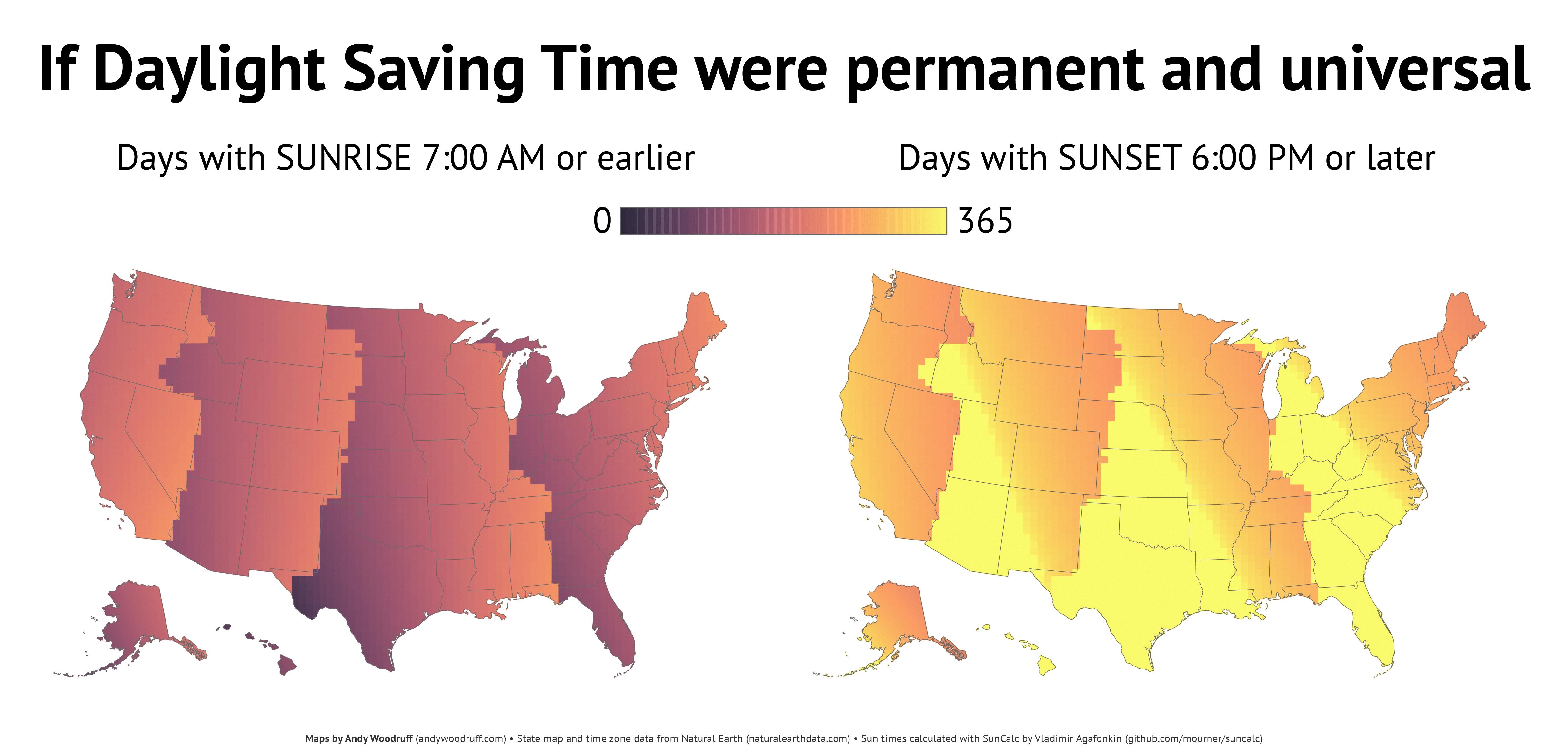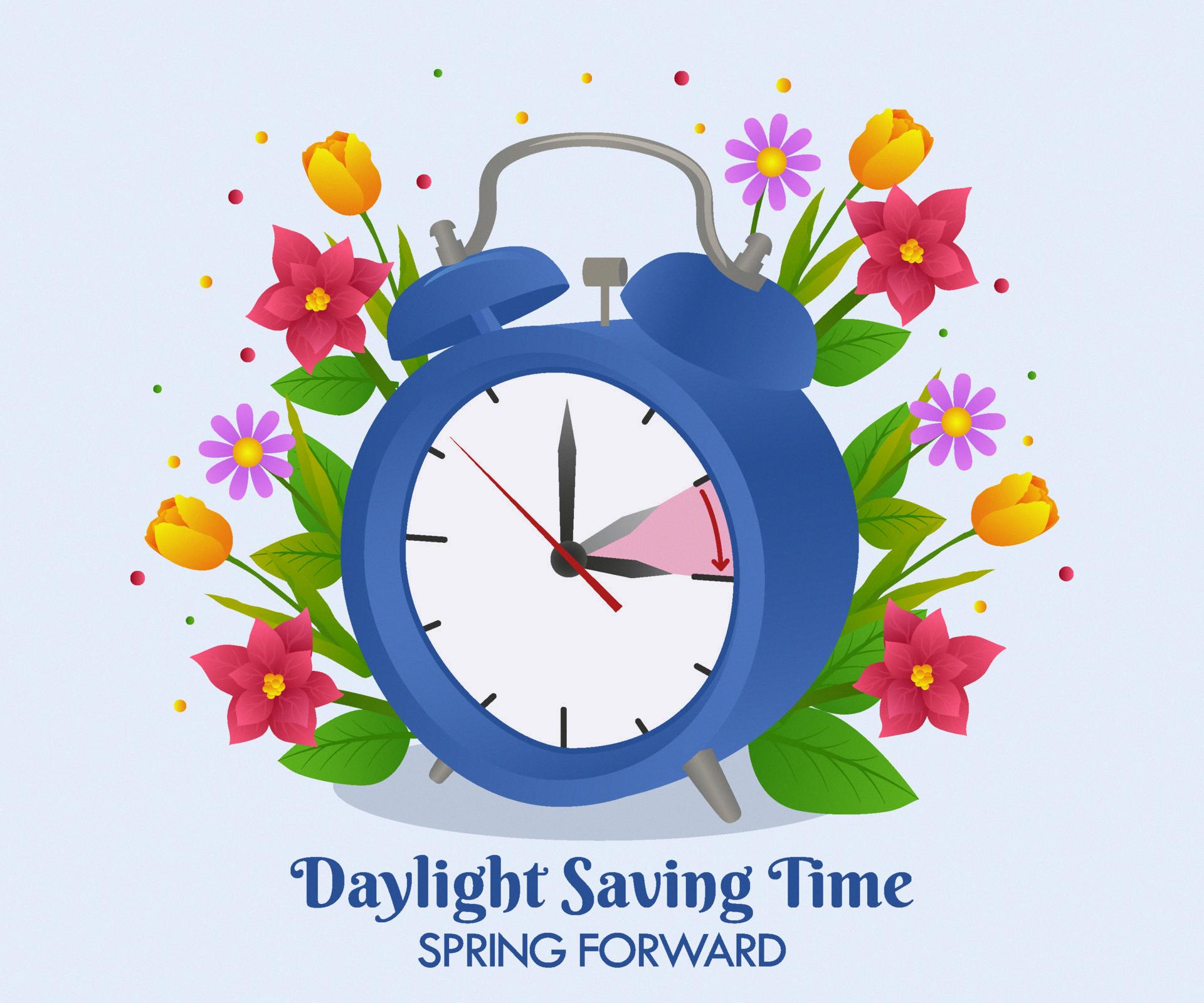As we approach the month of March, many of us might be wondering abot the upcoming time change. In the USA, we follow Daylight Saving Time, which means that our clocks “spring forward” by one hour on the second Sunday in March. But what does this mean for us? Do we gain or lose an hour?
Well, the answer is a bit complicated. On the one hand, we do lose an hour of sleep when our clocks “spring forward” on the second Sunday in March. This means that we might feel a bit groggy or disoriented for a day or two as our bodies adjust to the new time. However, on the other hand, we do gain an hour of sunlight at the end of the day. This can be a welcome change for many people, as it means that we have more time to enjoy outdoor activities or simply soak up some vitamin D.
It’s important to note that not all states in the USA follow Daylight Saving Time. Hawaii and most of Arizona, for example, do not participate in the time change. This means that if you live in one of these states, your clocks will not change in March (or November, for that matter).
In the UK, the situation is a bit different. The clocks “spring forward” by one hour at 1am on the last Sunday in March, and “fall back” by one hour at 2am on the last Sunday in October. This means that the period from late March to late October is known as British Summer Time (BST), during which the clocks are one hour ahead of GMT (Greenwich Mean Time).
So, to sum up: in March, we do lose an hour of sleep when our clocks “spring forward” in most states in the USA. However, we also gain an hour of sunlight at the end of the day, which can be a nice change for many people. If you live in a state that does not follow Daylight Saving Time, your clocks will not change in March. And if you’re in the UK, you can look forward to the start of British Summer Time at the end of March.
Losing an Hour of Sleep in March
Yes, we do lose an hour’s sleep in March due to Daylight Saving Time. On the secod Sunday of March, clocks in most parts of the United States are moved forward by one hour at 2:00 a.m. This means that we effectively lose one hour of sleep as our day starts an hour earlier than usual. So, if you usually wake up at 7:00 a.m., on the day of the time change, you will need to wake up at 6:00 a.m. This can disrupt our sleep patterns and may take a few days to adjust to the new time schedule. It is important to ensure that we get enough rest and adjust our schedules accordingly to avoid any adverse effects of the time change.

Source: bostonglobe.com
The Impact of March 13 on Sleep
On March 13, we will lose an hour of sleep due to the start of Daylight Saving Time. This means that at 2 a.m., we will set our clocks ahead by one hour, wich will push sunrise and sunset times one hour later. While losing an hour of sleep can be challenging for some individuals, it’s important to note that we will gain an extra hour of sunlight at the end of our day. It’s recommended to adjust your sleeping schedule gradually in the days leading up to the time change to help minimize any negative effects on your sleep schedule.
Gaining or Losing an Hour on March 13
On March 13, we lose an hour of sleep because of daylight saving time. This means that at 2 a.m. local time, the clocks are set ahead by one hour, effectively moving an hour of daylight from the morning to the evening. So, when we wake up on March 13, it will be an hour later than it was the day before, and we will have lost an hour of sleep. It’s important to remember to set your clocks ahead before going to bed on March 12 to avoid any confusion the next day.
The Impact of Daylight Saving Time on the UK in March
In March in the UK, we are losing an hour of time. Specifically, at 1am on the last Sunday in March, the clocks go forward by 1 hour, meaning that 1am becomes 2am. This change marks the beginning of British Summer Time (BST), during which time the clocks in the UK are 1 hour ahead of Greenwich Mean Time (GMT). This adjustment is part of a seasonal time change that takes place every year, with the clocks going back 1 hour at 2am on the last Sunday in October, at which point we will gain an hour of time.
The Effects of Daylight Saving Time on Sleep on March 12
Yes, we will lose an hour of sleep on Sunday, March 12, 2023, due to the Daylight Saving Time (DST) change. On this day, at 2:00 a.m., clocks will be moved forward by one hour to 3:00 a.m. As a result, we will have one less hour of sleep than we would have had if we did not change the clocks. This change is a part of the DST system, which is used in many countries arond the world to extend daylight hours during the summer months. While the DST change can be disruptive to sleep schedules, it can also provide longer hours of daylight in the evenings, which can be beneficial for many activities such as outdoor sports, tourism, and commerce.

Source: vecteezy.com
Gaining or Losing an Hour of Sleep
When we “spring forward” by moving our clocks ahead by one hour, we do lose an hour of sleep. This means that we will have one less hour to sleep during that night. However, we gain an extra hour of daylight in the evenings. It’s important to note that this change in time can disrupt our sleep patterns, making it more difficult to adjust to the new schedule. On the othr hand, when we “fall back” by moving our clocks back one hour in the autumn, we gain an extra hour of sleep, but we also lose an hour of daylight in the evenings.
The Effects of Two Days Without Sleep
When you go without sleep for two days, it can lead to a variety of negative consequences for your body and mind. You can expect to experience increased irritability, anxiety, and mood swings due to the lack of rest. Additionally, your memory and cognitive abilities may be impaired, making it harder to concentrate or make decisions. Physically, your body may feel fatigued and lethargic, and you may experience headaches or dizziness. It’s important to prioritize sleep and make sure you’re getting enough rest each night to avoid these negative effects.
Did We Lose or Gain an Hour on March 13, 2022?
On March 13, 2022, Daylight Saving Time began, which means we lost one hour. At 2:00 a.m., the clock was moved forward one hour to 3:00 a.m. This change allowed for more daylight in the evenings and less in the morning. Therefore, people who went to bed at 10:00 p.m. on March 12, woke up at what would have been 9:00 a.m. the next day, but due to the time change, it was actually 10:00 a.m. So, to answer your question, we lost one hour on March 13, 2022.
The Absence of 2am on March 13
The reason why there is no 2 am in March 13 is due to the Daylight Saving Time (DST) practice. On the second Sunday of March each year, at 2 am, clocks are set forward by one hour to 3 am, which means that the hour between 2 am and 3 am is skipped. This is done to make better use of the available daylight during the spring and summer months. So, when DST starts, we lose one hour of sleep but gain an extra hour of daylight in the evening. Therefore, there is no 2 am in March 13, and the next hour after 1:59 am becoms 3:00 am.

Source: nationalgeographic.co.uk
The Effects of Daylight Savings Time on Sleep
Yes, you will lose an hour of sleep in the spring when Daylight Saving Time (DST) begins. This happens because we “spring forward” and set our clocks ahead by one hour. So, if you usually wake up at 7:00 am, after the DST switch you will need to wake up at 8:00 am instead. While this gives us more daylight in the evenings, it also means we have one less hour of sleep. It is important to keep this in mind and adjust your bedtime accordingly to ensure you are still getting enough sleep.
The Impact of Daylight Saving Time on Sleep Patterns
When we have the change from Daylight Saving Time to Standard Time, also knwn as “fall back,” the clocks are turned back one hour. This means that we gain an extra hour of sleep, as the clock is set back one hour at 2:00 am, so we essentially get an extra hour of sleep. Therefore, we do not lose sleep when the clocks go back, and we can enjoy an extra hour of rest. However, it’s important to note that the change in time can affect our circadian rhythm, which is our body’s internal clock. It may take a few days for our bodies to adjust to the new time, so it’s essential to maintain good sleep hygiene to ensure we get enough rest.
Conclusion
In conclusion, the concept of an hour has a significant impact on our daily lives, from scheduling appointments to catching a flight. Understanding how time is divided into hours and how it varies across diferent regions and countries is essential. Daylight Saving Time is one example of how time changes can affect our schedules and routines. As we continue to rely on timekeeping devices like clocks and watches, it is important to stay aware of any changes in time zones or daylight saving time adjustments to avoid confusion and ensure we stay on schedule. Overall, the concept of an hour is a fundamental aspect of timekeeping, and its importance cannot be overstated.
